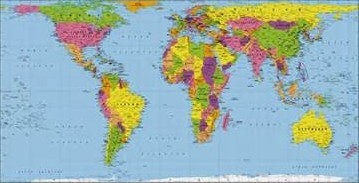A Prophet’s Treason
QUOFLECTIONS™
ON SPIRITUALITY AND ETHICS
“Indeed, I tremble for my country
when I reflect that God is just.”
Thomas Jefferson
Who are the worst traitors in American history? Benedict Arnold? Alger Hiss? Julius and Ethel Rosenberg? See if you can identify the traitor described below.
This man undermines his nation’s security. During war, he calls for surrender. Freedom means so little that, when the war is lost, he tells deportees to seek the welfare of their enemies. When the nation builds alliances with neighboring countries, he denounces their plan to regain sovereignty as a lost cause. He demoralizes the army and gives comfort to the enemy.
He is tried for treason but acknowledges no wrongdoing. Though he survives his first trial, he continues to disparage his country. He denounces war for any reason, even for defense, when his nation is again attacked. He defiantly declares that leaders defending their country will be killed or captured.
Who is this traitor whose recurring sedition makes Benedict Arnold’s actions appear petty? Surprisingly, the name of this dissident is the prophet Jeremiah.
How can this be? Is it possible there are higher values than patriotism, freedom and security? Why would a seemingly godly man oppose his nation’s attempt to defend itself against an aggressor nation that kills their inhabitants, installs a puppet government, demands tribute, and deports the leaders of the nation? On what basis does Jeremiah defend himself?
His first act of treason is his scathing temple sermon. The temple is the guarantor of homeland security, a place of ultimate power. After all, God resides in this holy place, and God declares that his chosen people reside in this nation.
Jeremiah mocks the presiding priests who exclaim as worshipers assemble, “This is the temple of the Lord, the temple of the Lord, the temple of the Lord!” He calls these “deceptive words that are worthless” (see Jeremiah 7:1-7). The prophet disparages a society that believes God guarantees their national safety.
According to Jeremiah, Judah is morally insolvent. While they perform rites of worship with religious fervor, they fail to recognize their social responsibilities—most notably by oppressing foreigners, orphans and widows. Like his prophetic predecessors, Jeremiah laments injustices not only as individual transgressions but also as failures of national policy. He shouts aloud for reform for 23 years, insisting that the nation will reap what it sows.
Jeremiah’s second act of treason is his fervent opposition to war. His call for surrender to Babylon is inconceivable to those who revere freedom. He warns that, because the nation fails to heed the Lord’s call for genuine spirituality and social justice, “this whole country will become a desolate wasteland” (25:11). Jeremiah’s vivid description of the terror of war, the destruction of Jerusalem and the captivity of the people is ignored. Theirs is the greatest nation on earth. Surely God will defend them. Yet Jeremiah is right: at length, the nation suffers its final defeat in 598 BC.
Jeremiah’s third act of treason is a letter sent to exiles counseling submission. He advocates prayer for Babylon and warns Jerusalem that, without reforms, they will experience the sword, famine and plague (29:4-23). God’s prophet is right: the nation is devastated in 589 BC. Senior officials and priests had Jeremiah lowered into a well to die for demoralizing the army with his anti-war protests. Fortunately, Jeremiah is rescued by one of the many slaves whose promised emancipation is rescinded by the aristocracy.
Jerusalem is initially decimated in 587 BC. The temple is burned and the city walls destroyed. Most of the citizenry is forced into exile.
Jeremiah is indeed a traitor for those who believe that freedom is mandatory, nationalism is virtuous, and religious rites or military might ensure security. For those who believe that God’s call and community supersede national loyalties, Jeremiah’s anguish for his wayward countrymen is a model of true patriotism, courage and faithfulness.
©2004 Harry Rix. All rights reserved.
Related Articles
Prophetic Love’s Power
The Values of a Galactic Education
A Revolution of Values
What is Our Greatest Moral Challenge?
Glimpsing the Creator

